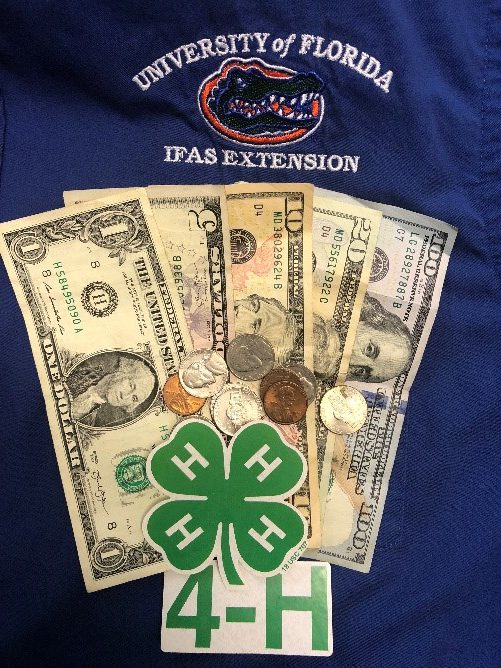
by pmdavis | Jan 10, 2020
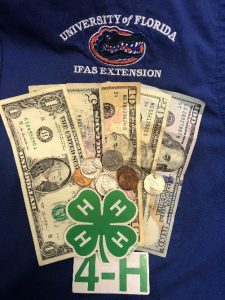
Are you financially savvy?
As a parent, I worry about children and their money habits! They often have trouble distinguishing between a need and a want. I often wonder if I am empowering them to be financially savvy. I know this is a topic that I continually work on for myself. It is important to start teaching healthy money habits early! It is also important for children to hear about personal finance to understand how money works in a variety of settings: home, school, and youth organizations. I know my children receive money as gifts and it tends to “burn a hole in their pocket” until it is gone. Like adults, children need to practice making “healthy financial” decisions so that those decisions become “healthy habits,” reducing stress in their lives.
With Valentine’s Day right around the corner, you might think of helping your children or grandchildren start a savings account to provide some financial security for the future. Then, encourage them to keep adding 10-20% of any money they receive to the account for a rainy day or that big purchase they desire.
RESOURCES AVAILABLE
Extension and 4-H have several publications and project books that provide guidance in the area of personal finance on spending, saving, investing, and donating. These projects can be done in a group setting or as a self-study project. National 4-H Curricula include “Financial Champions 1: Money FUNdamentals.” This piece has activities allowing kids to develop a money personality profile and style, understand the difference in needs and wants, make informed money decisions, set financial goals, and develop a money plan.
“Financial Champions 2: Money Moves” allows kids to learn how to predict outcomes and analyze their finances. They calculate interest; determine the cost of credit; learn how to manage a checking account, explore selecting financial services, make informed marketplace decisions and discover ways of handling money. National 4-H also has free curricula you can download for older youth.
UF/IFAS Extension also has free resources about money and financial management for adults and families on a wide range of topics such as Consumer Rights, Credit and DebtManagement, End of Life Issues, Finance and Family, Personal Finances Insurance, Retirement Planning, and Saving and Investing. University of Maryland 4-H also has a program called Financial Nuggets. This is a free download giving ideas on how to teach financial decision making to youth. It is designed for family involvement. Therefore families will increase their basic financial capacity and ability to make both short-and long-term decisions regarding spending and saving. It explores topics like needs verses wants, planning and managing money using a budget, how wealth is created and built, and managing risks.
Extension and 4-H want to encourage children, teens, and families to learn about personal finance, to practice what they learn and to teach others. We really want to get 4-H members and their families on the road to being money smart consumers. For more information on financial education and tools to help you become financially savvy or get out of debt, contact your local UF/IFAS County Extension Office, or visit http://florida4h.org. 4-H is one of the nation’s most diverse organizations and includes people from all economic, racial, social, political, and geographic categories. There are no barriers to participation by any young person. Participants are given the opportunity to engage in activities that hold their personal interest, while being guided by adult volunteers. If you are interested in volunteering, please contact your local office.
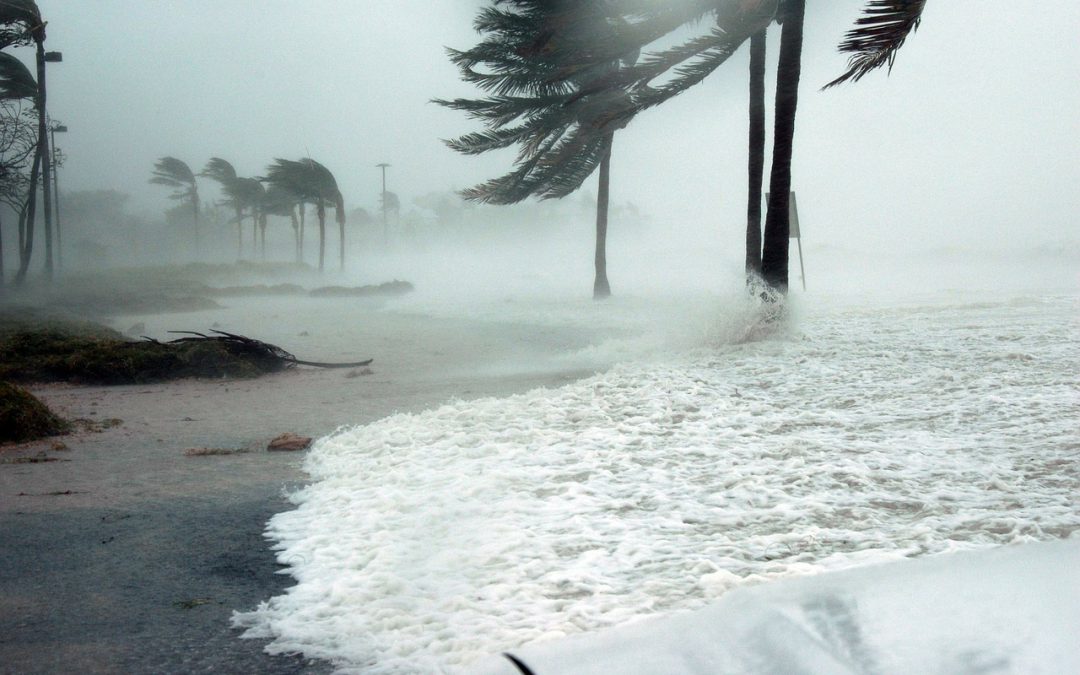
by Niki Crawson | Aug 30, 2019
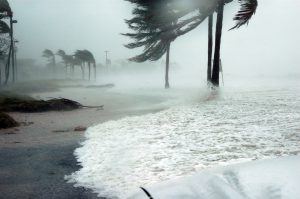 With the first real major storm of the 2019 hurricane season pressing down upon the entire state of Florida and the recent state of emergency declared on all 67 Florida counties by Governor DeSantis, it stands to reason that a lot of anxiety is spinning in the atmosphere along with Hurricane Dorian.
With the first real major storm of the 2019 hurricane season pressing down upon the entire state of Florida and the recent state of emergency declared on all 67 Florida counties by Governor DeSantis, it stands to reason that a lot of anxiety is spinning in the atmosphere along with Hurricane Dorian.
Many of us have experienced firsthand how a hurricane can disrupt our lives beyond something we could ever imagine. Some are still living in the disruption, trying desperately to find normalcy again. So, with the threat of Hurricane Dorian looming just a few days away, it is only natural for overwhelming feelings of anxiety, nervousness, and fear to kick in. You may begin to see these feelings develop among your family members, especially your children. It is important to recognize these emotions immediately and take action to help not only yourself but your children as well.
PREPARATION
Preparation is one of the most important ways you can regain control in your situation. In this case, preparation before Hurricane Dorian (or any future storms) will help reduce anxiety, eliminate any confusion among family members, and create clear communication for all. Here are some helpful tips for your family on how you can be prepared and reduce anxiety in the hurricane season:
- Have a family plan – Make it clear, keep it current, and know it well.
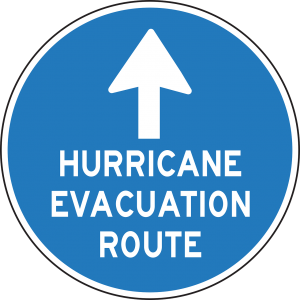
- Talk openly and honestly with your children about the weather situation – Make it a fun science experiment to explain hurricane patterns. Help them to understand how to track the path of the storm. Show them where to get accurate weather information like NOAA’s website.
- Give everyone a role and responsibility – Keep every person involved in the tasks and let them have ownership in getting the family prepared.
- Create your hurricane preparedness kits – Be sure to check out our information on building a disaster preparedness bucket here. Remember to include your pet’s needs.
- Share – Allow children to share feelings, concerns, stories of past experiences. Validate real concerns and allow children to come up with possible solutions or positive actions to alleviate those concerns.
We know that natural disasters can change our lives with little to no notice. Fortunately, Hurricane Dorian is giving you a little extra time to prepare if you have not already done so. Be proactive – take action now and reduce the anxiety level in your household as Dorian approaches. For the latest resources to help prepare and then deal with natural disasters such as Hurricane Dorian, the UF/IFAS Disaster Preparation & Recovery website offers some important information such as updated contacts, useful tips, and videos for you and your family.
We wish you and your loved ones safety this hurricane season. Be smart, be prepared, and be confident that you are prepared this season and beyond.
Visit your local UF IFAS County Extension Office and meet your 4-H Extension Agent for additional information on a variety of topics that can benefit you and your family. From 4-H educational activities to ways to keep your family safe, Extension and 4-H is always available to assist you and your family.
HELPFUL RESOURCES DURING A DISASTER
by Rachel Pienta | Jun 7, 2019
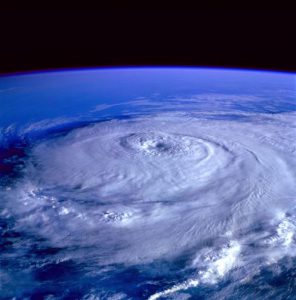
Hurricane Michael was the first ever Category 5 hurricane on record to impact the Florida Panhandle.
Are you ready? The 2019 Atlantic hurricane season began June 1. The official hurricane weather season continues until November 30, 2019. For Florida residents, it is never too early and not too late to prepare for this year’s hurricane season. NOAA’s Climate Prediction Center released a forecast prediction reporting a 40% chance of a “near-normal” Atlantic hurricane season and a 30% chance “above normal” indicating a range of 4-8 hurricanes, including 2-4 hurricanes of category 3 or higher. With this information provided as a means to increase disaster preparedness awareness, it is imperative that our families take action now to minimize the anxiety, stress, and hardships that occur when a disaster strikes. The following information details three family-friendly disaster preparedness activities to complete during the month of June to be hurricane ready for the 2019 season followed by useful informational links.
Build a Disaster Preparedness Bucket
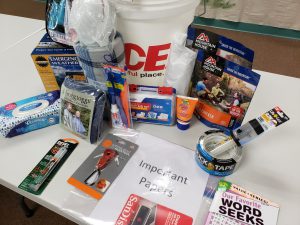
The contents of a disaster bucket assembled by Wakulla County Emergency Management Director Jennifer Nagy.
One annual activity that families can do together is “build a disaster preparedness bucket.” Families may prepare large plastic storage containers with lids for hurricane snacks and other necessary items. In a storm situation where conditions may require you to move to safety, preparing a 5 gallon bucket with a lid full of recommended essential items will provide a portable, easy-to-store alternative that the whole family can use. Buckets may be purchased at local hardware or home improvement stores. In your area, organizations like your local city or county emergency management department or the Red Cross may offer a bucket giveaway program with pre-stocked disaster preparedness kits.
Talk About Your Communications Plan
As a family, decide who will be the point of contact for all members to contact in case of emergency. This activity is an excellent way to engage your child in critical thinking and problem solving. The person or people should be located outside the impacted area – a grandparent or other relative or family friend in another state would be one possibility. Provide each family member with a laminated contact list – with emails, phone numbers, and addresses – that can be kept in disaster preparedness kits, saved in phones, or stored in wallets and backpacks. Local business supply stores, mail or copy centers in your area may offer laminating services to make waterproof contact lists for safe storage and easy reference.
Have a “Meals To Ready” Taste Test Dinner
After a disaster, your family may be without power for several days or longer. To enjoy safe, hot meals, one option is “meals ready to eat” also known as MREs. MREs are a complete, filling & nutritious way to feed your family. MREs can be purchased online or in the camping section of stores like Bass Pro or Wal-Mart. These meals have a long shelf life and can be stored for months until needed. Some MREs include built-in heaters while others require boiling water to prepare. Camping MREs tend to be an entrée only. Military style MREs will have most, if not all, of the following components: entrée, side dish, bread, spread, dessert, cold drink mix, instant coffee, spoon, condiments, napkin, moist towelette, and a flameless ration heater.
Completing an MRE taste test as a family planning activity will help you determine which products your children will eat when the time comes to use the MREs. The taste test can be fun for the whole family – have everyone taste and then rate each meal or meal component on a scale of 1 to 5 – with 5 being the best possible in flavor and food quality. When you get ready to purchase a supply of MREs, you will know whether your family is going to prefer lasagna to white chicken chili and can shop with confidence!
For more information about hurricane season preparation or 4-H programs in your county, please contact your local UF IFAS County Extension Office, or visit http://florida4h.org.
Resources
by Melanie Taylor | Dec 14, 2018

Aim to find JOY in this holiday season.
As the holiday season quickly approaches, many people are filled with extra holiday cheer and enthusiasm. Some are jolly but still overwhelmed with all of the activities, decorating, and shopping that needs to be completed. Then, there are those that find the holiday season as a reminder of things such as the death of a loved one, family feuds, divorce…the list goes on. If you are feeling this way, here are a few tips to make getting through the season a little bit easier.
- Feel your emotions – Many people want to suppress their sadness or anxiety, but this only makes it worse. We are all allowed to grieve, cry and feel mad at times. If you feel this way, let yourself feel your feelings. You will feel better once you have accepted and worked through the emotions. You also do not have to force yourself to feel happy just because it is the holiday season.
- Reach out to others – Instead of secluding yourself, spend time with others whether it’s at church, a community group or with family and friends. Spending time with others and socializing is good for the spirit.
- Volunteer – There are tons of volunteer opportunities during the holidays. Try something new and volunteer your time to a worthy cause. You’ll feel great about helping others and contributing to a cause.A national survey commissioned by UnitedHealth Group talked to 3,351 adults and found the majority of participants reported feeling mentally and physically healthier after a volunteer experience.
The research showed:
* 96% reported volunteering enriched their sense of purpose in life
* 94% of people said volunteering improved their mood
* 80% of them feel like they have control over their health
* 78% of them said volunteering lowered their stress levels
* 76% of people said volunteering has made them feel healthier
* About a quarter reported their volunteer work helped them manage a chronic illness by keeping them
active and taking their minds off of their own problems
* Volunteering improved their mood and self-esteem
- Be realistic – Realize that times and traditions change as families grow and age. Do not focus on things having to be the same every year. Be willing to accept changes, such as adult children may not be able to attend the family gathering, so utilize technology and talk through video conferencing, share pictures on email and/or Facebook. Find a way to make it work.
- Set aside differences for everyone’s sake. Aim to accept family and friends the way they are, even if they do not meet your expectations. Leave grievances at the door for the day and enjoy your family and friends. Share those grievances and talk at a more appropriate and private time. Also, remember they could be feeling the stress of the holiday too. So, be patient if someone is grouchy or sad as you celebrate. You may both be feeling the same way.
- Learn to say no – Be realistic in the number of activities you and your family can participate. Do not feel guilty because you cannot attend every party and event you are invited too. Graciously decline an invite and share that your schedule is booked, but thank them for thinking of you. A host does not expect that everyone will attend their parties.
- Take a breather as needed – If you start to feel overwhelmed with anxiety, anger or sadness take a few minutes to be alone. Take 15 minutes to spend in the quiet to reduce the stress and clear your mind. For example: listen to soothing music, do a few mindful breathing exercises to slow yourself down or read a book to temporarily escape the stress.
- Seek professional help as needed – there are times when the emotions are just too overwhelming to sort through on our own. If you continue to feel sad, anxious, angry, etc. there is absolutely no shame in seeking the help of a doctor or mental health professional. It will only help you work through your feelings with a non-bias person. Helping yourself feel better will improve your quality of life and those around you.
Learn to take care of yourself first. Learn your limitations and accept them. Don’t t let other’s expectations overwhelm you. Just remember when you start feeling extreme levels of emotions and/or stress, take a few deep breathes and remind yourself to relax and feel the moment. Be mindful of your surroundings and remind yourself of your many blessings even when going through difficult times. Make it your personal goal to feel your feelings and enjoy what you can about the holiday season whether it is the twinkling lights, time with friends and family, the food or any of the many special holiday traditions.
Striving for and maintaining a healthy lifestyle is an achievable goal and a National 4-H Council mission mandate for all of our 4-H members, families and volunteers. To learn more about healthy lifestyles and 4-H, find your local UF/IFAS Extension office.
Sources:








